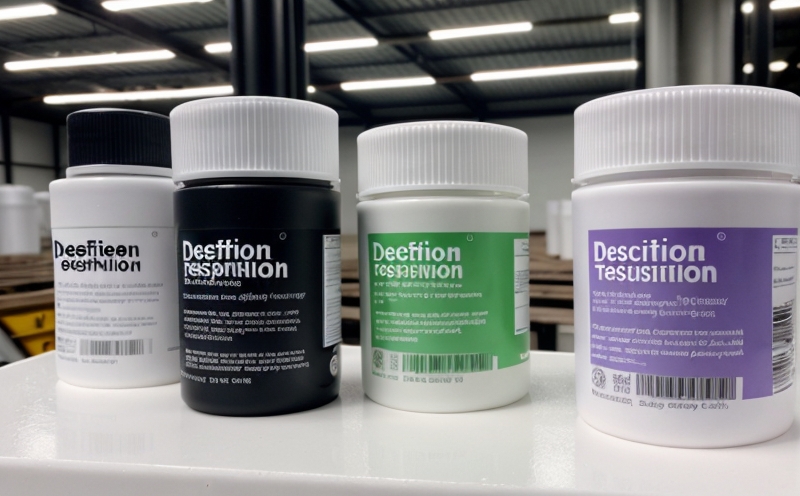ISO 15061 Trihalomethanes Determination Test in Water
The ISO 15061 standard provides a robust method for determining trihalomethanes (THMs) in water, which are byproducts of the chlorination disinfection process. THMs include compounds such as chloroform, bromoform, dibromochloromethane, and bromodichloromethane. These substances can form when chlorine interacts with organic matter present in raw water during treatment processes.
The importance of this test lies in its role in ensuring public health and safety, particularly regarding drinking water quality. Elevated levels of THMs have been linked to potential adverse health effects, including respiratory issues, gastrointestinal problems, and even cancer if consumed over extended periods (WHO Guidelines for Drinking-water Quality).
Compliance with ISO 15061 is crucial for water treatment facilities, especially those serving large populations or supplying potable water. This includes municipalities, private companies operating public utilities, and industrial sites that use treated water in their processes. By adhering to this standard, these entities can demonstrate their commitment to maintaining high-quality drinking water standards.
The test procedure outlined by ISO 15061 involves several steps including sample collection, pre-treatment if necessary, extraction using either solvent or solid-phase methods, and quantification through gas chromatography with mass spectrometry (GC-MS). The presence of THMs is determined based on specific target concentrations set forth in regional regulations.
Our laboratory utilizes state-of-the-art equipment capable of performing this analysis with precision and accuracy. Our experienced technicians follow strict protocols to ensure reliable results, making us a trusted partner for water utilities seeking reliable data.
In summary, the ISO 15061 Trihalomethanes Determination Test is essential for monitoring compliance with regulatory requirements while also safeguarding public health by providing accurate measurements of THMs in treated waters. At our facility, we pride ourselves on delivering consistent, high-quality results that meet or exceed industry standards.
For those responsible for ensuring water quality at their facilities, understanding the significance of this test cannot be overstated. It serves as a critical tool not only for compliance but also for maintaining trust in the community regarding safe drinking water practices.
Why It Matters
The determination of trihalomethanes (THMs) via ISO 15061 is vital because these compounds are formed during the chlorination process used to disinfect water. While chlorine is effective at killing harmful microorganisms, it can react with naturally occurring organic matter in the water supply, leading to the formation of THMs.
These byproducts have been linked to various health concerns, including an increased risk of cancer and other serious illnesses over time (EPA Health Effects). Therefore, regular monitoring through ISO 15061-compliant testing ensures that treated waters remain safe for consumption. This is particularly important in regions where tap water serves as the primary source of hydration.
Moreover, compliance with this standard helps facilities avoid costly penalties and reputational damage associated with non-compliance incidents. It also supports long-term sustainability efforts by fostering trust among stakeholders who rely on clean, reliable drinking water supplies.
In addition to protecting public health, accurate THM levels provide valuable insights into treatment efficiency and potential areas for improvement within the purification process. By identifying any deviations from expected standards early on, managers can take proactive measures to address issues before they escalate into larger problems.
Quality and Reliability Assurance
At our laboratory, we employ rigorous quality control measures throughout every stage of the ISO 15061 Trihalomethanes Determination Test process. From sample collection to final analysis, each step is meticulously documented and reviewed to ensure accuracy and consistency.
We use high-performance liquid chromatography (HPLC) coupled with mass spectrometry (MS), which allows for precise identification and quantification of THMs according to specified limits. Our team follows all procedures outlined in the ISO 15061 standard, ensuring compliance with international best practices.
In addition to internal audits conducted regularly by our trained personnel, external accreditation bodies periodically review our methods and facilities. This continuous evaluation ensures that we maintain the highest standards of reliability and accuracy.
Our commitment to quality extends beyond technical proficiency; it encompasses timely delivery of results and transparent communication regarding findings. Whether you need routine testing or one-off evaluations, rest assured that your samples will receive prompt attention from experienced professionals dedicated to delivering accurate outcomes.
Competitive Advantage and Market Impact
The ability to accurately determine trihalomethanes in water using ISO 15061 is not just about meeting regulatory requirements but also about gaining a competitive edge in today's increasingly health-conscious market. Water utilities that demonstrate rigorous adherence to this standard can position themselves as leaders in environmental stewardship and public health.
Consumers are becoming more aware of the importance of drinking water quality, and companies providing safe, compliant products are likely to see increased demand from both residential and commercial sectors. By ensuring consistent compliance with ISO 15061, water providers can enhance their brand reputation and attract customers seeking reassurance about the safety of their supplied water.
From an operational perspective, accurate THM testing allows for better management of treatment processes. Facilities that can quickly identify potential issues early on are better equipped to make adjustments promptly, reducing downtime and minimizing disruptions to service delivery. This proactive approach can lead to cost savings in the long run by preventing more significant problems from developing.
Additionally, achieving ISO 15061 certification signals a commitment to excellence that resonates with stakeholders across various industries. Whether you're working within the public sector or private enterprise, demonstrating proficiency in this area can open doors to new opportunities and partnerships.





